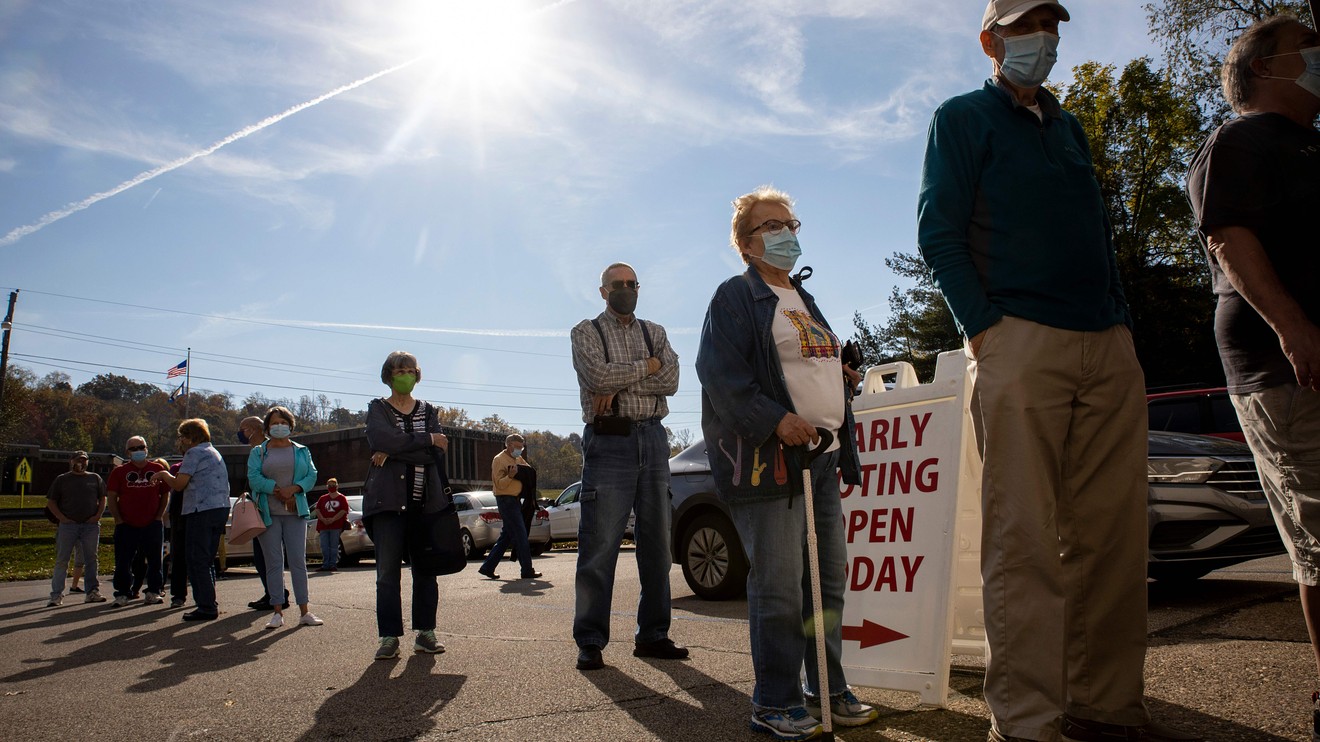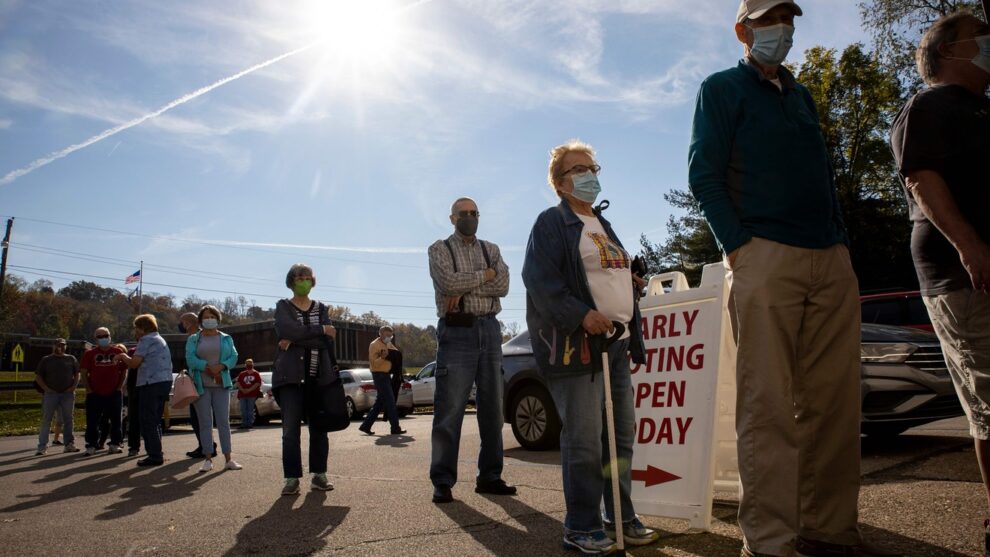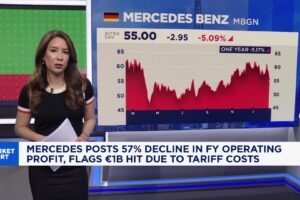
A record number of Americans have voted early in the race between President Donald Trump and Democratic challenger Joe Biden, and many will still head to the polls on Election Day. Some companies want to make sure they have plenty of time to do so.
Major companies including Walmart WMT, -0.83% and Twitter TWTR, -21.11% are trying to make it easier for workers to cast their vote on or before Nov. 3’s Election Day, often by providing paid time off.
But many workers don’t know about the accommodations, a new survey suggests.
While 52% of companies are offering paid time off to vote according to their human resource staffers, only 23% of workers are aware of the benefit, a survey from the Society for Human Resource Management found.
Almost one-third (30%) of human resource officials say their companies are providing time off with no pay, and 16% of workers said they knew about such a benefit.
“It’s not unusual for people not to be aware of the specifics they are being afforded by their employers, sadly,” said Johnny Taylor, president and CEO of the Society for Human Resource Management, a professional association.
The survey comes during a hard-fought presidential election — and the coronavirus pandemic that’s up-ended work routines and added another layer of complexity to the voting process.
More than 22 million people had already cast their vote as of earlier this month, according to the Associated Press. That’s 16% of all votes in the 2016 presidential election.
The wait for early in-person voting has sometimes stretched on for an hour or more, according to media reports. A delay like that can take a real chunk out of a person’s work day.
The findings come from two surveys, one of almost 500 human resource workers who are members of the Society for Human Resource Management. The other survey polled approximately 1,000 people. ***NORC at the University of Chicago performed the worker survey on SHRM’s behalf. ****
Workers in one survey may not necessarily be working at the same companies as the human resource officials. Still, said Taylor, the lack of awareness might hold true even if the workers and HR poll participants worked in the same place.
Employees are often unaware that they’re entitled to all sorts of perks, he said. “Some of it is employees during the orientation process are just overwhelmed with data,” and more focused on key questions like pay.
Between 42% and 44% of surveyed companies offered paid time off to vote between 2017 to 2019, according to previous benefit surveys from the organization that used larger sample sizes.
Taylor was expecting even more companies to offer time off for voting this election season. But when he asked around, some colleagues told him they weren’t doing it because the opportunity to vote has been stretched out over so many days, and workers already had flexibility in how they used their time off.
Around 25% of companies told Mercer, the human resources consulting firm, they were changing their internal policies this year to provide more voting time. The most-cited tweak was increasing paid time off (10.5%), according to the survey released Thursday.
As of late August, more than 700 companies had joined Time To Vote, a non-partisan coalition of businesses pledging to facilitate their staff’s ability to vote. (That’s anything between a paid day off, lighter schedules or assistance with mail-in ballots.)
Over 200 companies joined the coalition over the summer, including Nike NKE, -2.26%, Dell Technologies DELL, -0.43% , Visa V, -1.70% and Bank of America BAC, +0.68%. Nike said its accommodations may include paid time off on Election Day, no meetings that day or offering resources for mail-in ballots and early voting.
Dell already offers paid time off to vote, a spokeswoman noted. But she added that the company joined the coalition “to further amplify this message amongst team members and reinforce our commitment to civic engagement.”
Visa expanded its paid time off policy from two to four hours and offered other resources on voting, including a virtual event with voting experts, a spokesman said. “Taken together, we hope these actions lead to an increase in employee voter participation in our country’s elections this year,” he said.











